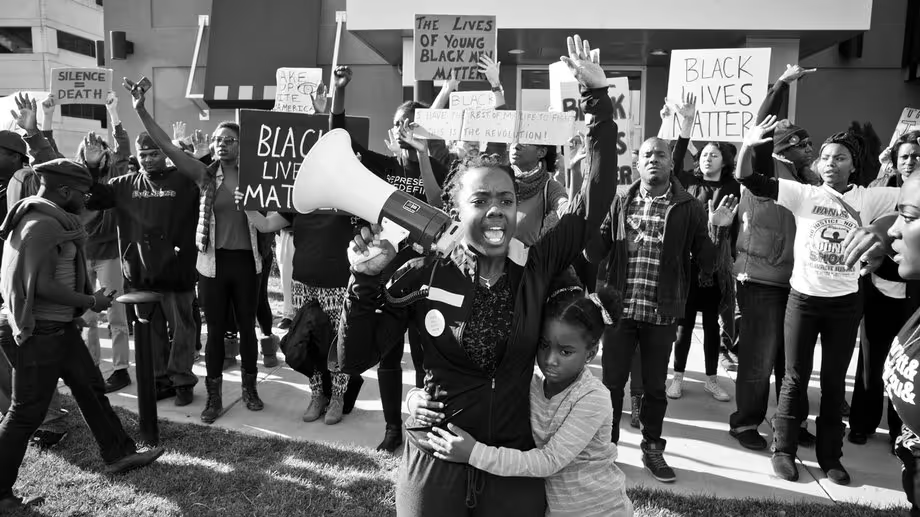Whose Streets? Lesson Plan
Overview

"Resist and participate in democracy! That is your right and it cannot be taken away from you.” This quote from Whose Streets?, a documentary film by Sabaah Folayan and Damon Davis, responds to the systemic oppression at work around the world against people of color. This lesson provides a framework for critical analysis of current and historic race relations in America through the lens of the 2014 shooting of Michael Brown, Jr., a young unarmed black man, by white police officer Darren Wilson in Ferguson, Missouri.
In this lesson, students conduct a Socratic seminar in preparation for creating a plan of action to submit to local bodies of government with suggestions for improving relations between police departments and the people in the communities that they protect and addressing other disparities in our country’s criminal justice system. This plan of action is malleable and will be adjusted depending upon grade level and specific issues in your school community. The structured conversation of the Socratic seminar will help students generate questions and proposed solutions for their written plans of action.
A Note From the Directors, Sabaah Folayan and Damon Davis
We made this film as an act of recognition. The people who took to the streets following the death of Michael Brown Jr. were mothers, fathers, teachers, students and everything in between. Through the chaos and political talk, the humanity of the situation got lost. Whose Streets?is meant to remind all of us that freedom comes with a responsibility, and that sometimes participation in democracy means taking risks, including the risk of being misunderstood. They called Dr. King a troublemaker. They called Ferguson protestors “thugs.” There will always be those who fear change. Our belief is that the act of protest, whether that be rallying in the streets or telling the truth in the classroom, is our best hope in the fight for a world that is just, fair, and safe for our children. If you have decided to take on the challenge of using this film as a teaching tool, we thank you for your courageous leadership.
A Note From Curriculum Writer Vivett Dukes
Teaching is a form of social activism. It is deeply embedded in my philosophy of pedagogy that all of us, regardless of our content of expertise or station in life are, at our cores, facilitators of change. At our best, our classrooms are labs where societal problems great and small are analyzed, reconstructed and moved closer to being solved by the students entrusted daily in our care. That is why I wrote this Whose Streets?lesson plan—to bring to the forefront the deeper implications about what the shooting of Michael Brown, Jr. and the reverberation of the protests that ensued as a result of his murder in 2014 mean today for us—all of us. You see, what you have before you is not just a lesson plan. It is a call to action. It is a charge to be not just the proverbial but the literal change that you want to see in the world. Through the posing of poignant yet challenging essential questions and structured, researched responses, it is the sincere hope that students and educators who engage in the activities of this lesson will move beyond their roles as momentary passive classroom participants to become lifelong informed and civically engaged community citizens. From one educator to another who is in this fight right alongside you, I thank you sincerely for adding Whose Streets? to your teaching repertoire. Together we win.

